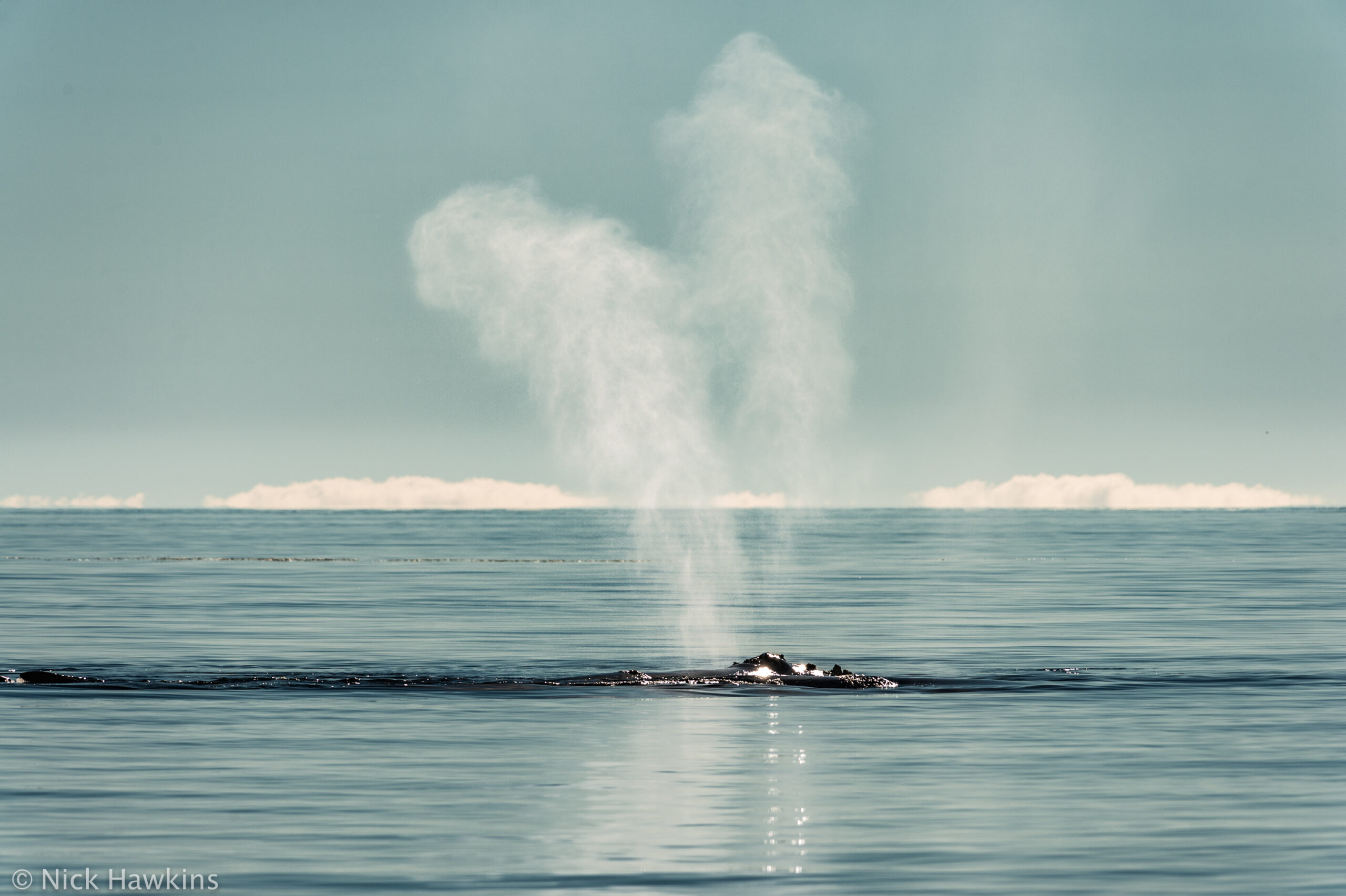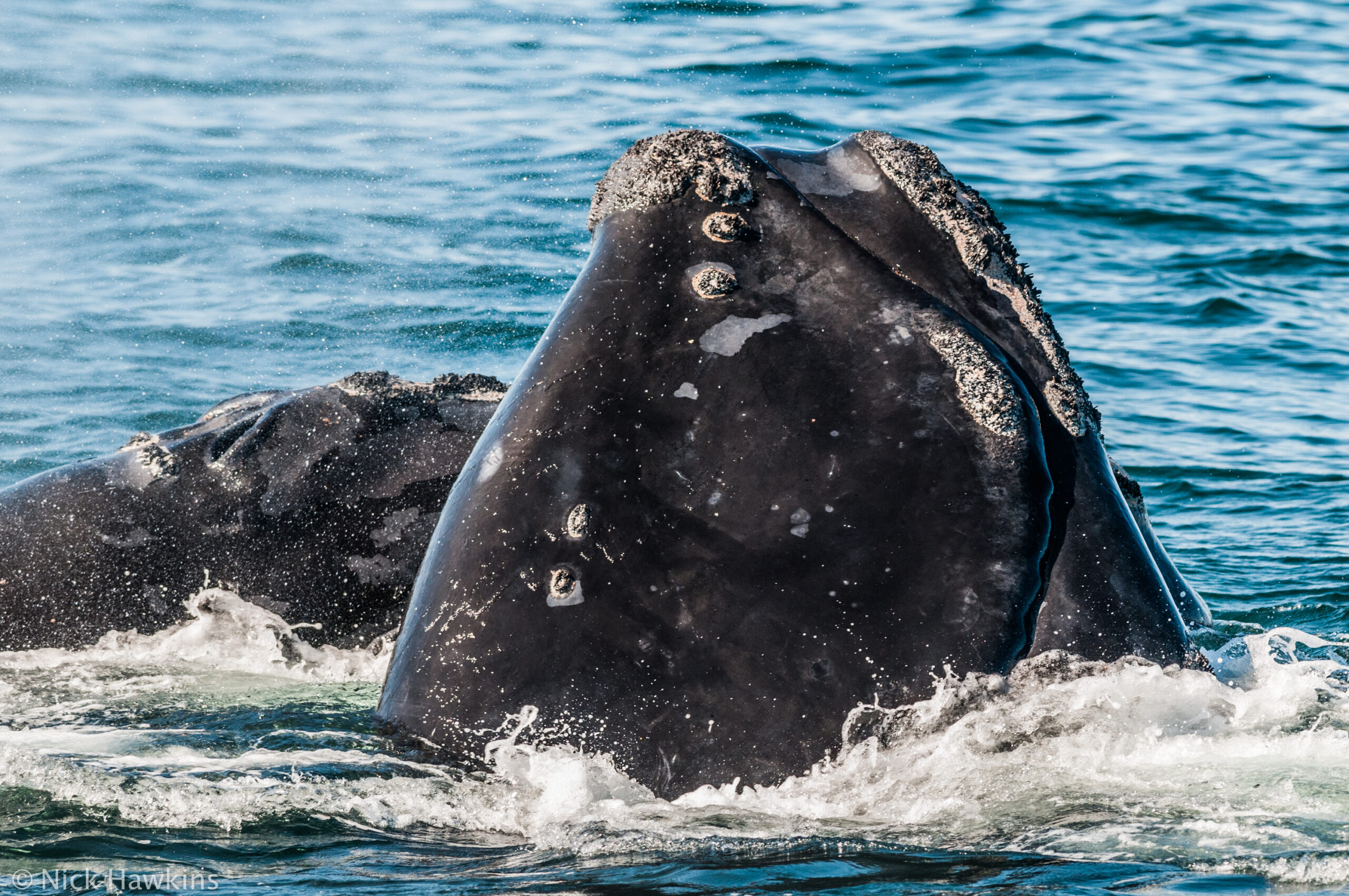Just the Beginning
At the same time, the industry recognizes that much oceanic change is being driven by an even larger change: climate change, and that while individuals, and individual industries, have a role in fighting it, it is a humbling force.
[Climate change] appears to be out of control. We are just sort of at the mercy of the events caused by this change.
–Gilles Therieault
One thing right whales are teaching us is that the impacts of climate change can’t all be predicted. No one would have guessed that tiny copepods would move northward and one of the ocean’s largest, and most endangered, species would follow, heightening employment insecurity in North Atlantic coastal communities.
The many changes fish harvesters, industry managers, and deep-sea divers report–warmer temperatures, fish “in much deeper water than they traditionally were in” as plant manager Jan Voutier said, predator fish like striped bass found in places they hadn’t been before, the arrival of tropical fish–point to the unpredictability and sometimes suddenness of change.
The traditional fishing plans that were used at one time … is changed a lot now. We have fish in … much deeper water than they traditionally were in, and it’s to the point now where we’re having to develop new technology to deal with the problem of heat on the water. … We need a lot more technology to provide good quality product to the marketplace.
–Jan Voutier, manager of Ka’Le Bay Seafood in Glace Bay, NS
Investment in new cooling and insulation technology is just one way climate change is already costing considerable time and money. Crab harvesters have tried to start their season earlier to avoid the North Atlantic right whales, necessitating the use of costly icebreakers to access the waters. One company reports development of a multimillion-dollar trawler to deal with warming.
This company is in the process now of building a new, top of the line, state of the art, multimillion-dollar trawler … It’s all to do with refrigeration and the condition of the fish, and how we handle it.
–Jan Voutier
[As] the storms become more frequent, and they become more severe, then we have additional sediment moving up and down the coast, which are plugging up harbours … [our boats] could be sitting outside of the harbour for six, eight, ten hours, before they can actually come into the harbour. At times that is very, very expensive for the factories, because they can’t get the raw material.
–Jan Voutier
Osborne Burke, general manager of Victoria Co-operative Fisheries in Neil’s Harbour, Cape Breton, notes that some species decline may already be attributable to changing climate.
If you look at mackerel fishing, mackerel are very sensitive, like tuna, to temperature. Water temperatures are changing. For mackerel, an extra degree or two in temperature could mean an extra mile or two offshore, or not coming in at all, and the fishermen don’t catch them like they used to.
–Osborne Burke, general manager of Victoria Co-op
Burke also notes the economic impacts of these changes.
It seems to be having an ongoing impact to their livelihoods directly at the end of the day… If you go in the heat of first of August, you could be losing a thousand pounds a day of dead crab, and that’s with putting as much ice as we can aboard the vessels, keeping the crab as chilled as possible.
–Osborne Burke
It’s clear from talking to fish harvesters and processors that a changing climate has myriad impacts, many of them unexpected. Climate science tells us we can expect more of the same as the global temperatures rise.
What exactly that looks like in the North Atlantic, and in coastal communities, remains to be seen. But its very unpredictability indicates that old systems of fisheries management must also be adapted to accommodate rapid and accelerating change.









